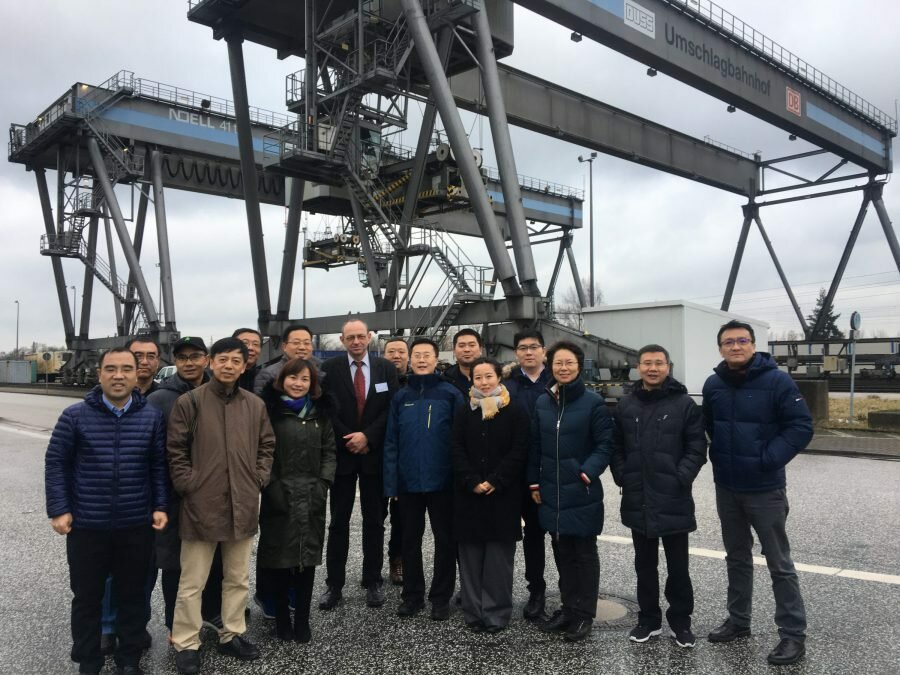Intermodal freight transport (combined transport) is one pillar of the shift approach within climate action strategies to make freight transport and logistics greener and more sustainable, thus effectively meet the targets of the Paris Agreement. Using combined transport means shifting road freight transport to more CO2 efficient modes such as rail or waterborne transport and therefore significantly reduces CO2 emissions and the energy consumption per loading unit.
With growing freight volumes – not only in China but also in Germany and many other economies around the globe – and the shift away from large-scale bulk goods towards the small-scale cargo of higher value goods, all stakeholders in the logistics chain are challenged to optimize their operation and resource allocation to provide a sustainable and competitive service. To promote intermodal freight transport especially policy makers, infrastructure providers and managers, railway undertakings, combined transport operators, terminal operators as well as road haulage companies, freight forwarders and logistics companies need to align their strategies and actions and endorse technical as well as organizational innovation.
The Chinese Ministry of Transport (MoT) together with related government agencies have identified the promotion of combined transport as a crucial instrument to mitigate CO2 emissions. Their objective is to enhance the shift from road to rail and water transport through improvements in infrastructure, technology, operation as well as data and methodology to map the potential for relocation and CO2 reduction in combined transport.
To bring together Chinese and German experts and policymakers as well as researchers in the field of combined transport and to allow for an in-depth exchange of knowledge and practical experience, 14 delegates from MoT and affiliated institutes visited Germany from 3rd to 15th December 2017 and attended numerous meetings with distinguished institutions in Berlin and Hamburg. The Sino-German Cooperation on Low Carbon Transport (CLCT) project, commissioned by the German Federal Ministry for the Environment, Nature Conservation and Nuclear Safety (BMUB), organized the “Intermodal Transport” study tour program.

Part of the exchange were meetings with the BMUB, the Federal Ministry of Transport and Digital Infrastructure (BMVI) and the German Environment Agency (UBA) as well as lectures given by the German Promotion Centre for Intermodal Transport (SGKV), the Institute of Transport Research (Commercial Transport) at the German Aerospace Center (DLR), the Institute of Land and Maritime Transport (ILS) (Railways and Railway Operations) at the Technical University Berlin, the PTV Group or the Fraunhofer Center for Maritime Logistics and Services (CML).
Probably one of the highlights was the visit of one of the most innovative and fully automated Container Terminal Altenwerder (CTA) of the Hamburg Port and Logistics Company (HHLA), the Traffic Tower of the Hamburg Port Authority (HPA) as well as the demonstration at the German Railroad Transshipment Company (DUSS) of DB Cargo.
The discussions during the meetings showed that the political and the regulatory framework as well as support schemes play a crucial role in promoting combined transport. However, recently upcoming advances such as the digital transformation and the emergence of innovative start-ups will radically change logistics in the coming years, acting as a real game changer for the freight transport industry.





Comments are closed.